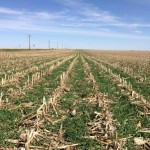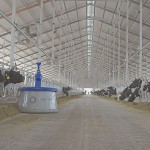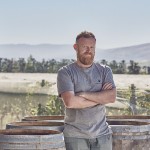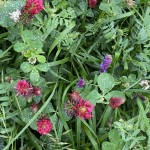Point of View
Added 10 months ago
By Alex Kahl
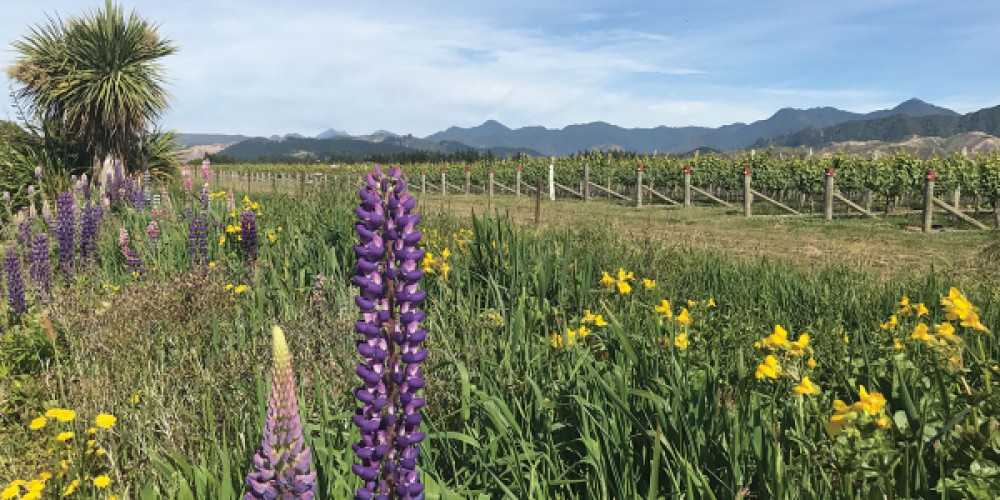
As published on Rural News Group
Pernod Ricard Winemakers Environmental & Sustainability Director Alex Kahl asks whether winegrowers have considered the impact of traditional viticulture on a vineyard’s soil health and long-term sustainability.
New Zealand is renowned for wines that showcase the unique terroir of our regions. We market our products as premium and distinct because our wines come from here; this land, this climate, this soil. However, some traditional growing practices that rely on a monoculture grape production model are having unintended consequences for our soil and environment.
During the past 12,000 years, human agricultural activities have resulted in the loss of 113 petagrams (Pg) of soil organic carbon (pnas.org), which is crucial for soil fertility, biodiversity, and climate regulation. To put that in perspective, that’s the equivalent of 11 trillion African elephants – enough to cover half the Earth’s surface.
Let’s narrow that down; over the past 50 years New Zealand’s reliance on agrichemicals and cultivation has contributed to a decline in soil health – the very foundation of our success. Climate change is likely to exacerbate this trend of soil organic carbon loss as higher temperatures accelerate the degradation of organic matter and more frequent extreme weather events result in increased soil erosion.
To combat this, many growers have looked to alternatives to traditional farming. One approach that offers a focus on soil health and biodiversity is regenerative agriculture. With its holistic approach to viticulture, regenerative agriculture prioritises soil health, biodiversity, and overall ecosystem function. I believe this approach not only benefits the environment, but in viticulture can also lead to healthier vines, more expressive wines, and ultimately, a more sustainable future for the New Zealand wine industry.
Since the early 2000s Pernod Ricard has been trailing and implementing what are now considered regenerative practices across our global vineyard holdings, including here in New Zealand. Since 2020 these have become part of formal trials.
These practices include:
- Planting diverse cover crops: This creates diversity in the living root systems year-round, and can improve soil structure, water infiltration, and nutrient cycling. Cover crops also suppress weeds naturally, reducing the need for herbicides.
- Minimising soil disturbance: By reducing cultivation, we minimise soil erosion, avoid carbon loss, and promote the growth of beneficial soil microbes. These microbes play a crucial role in unlocking nutrients for grapevines and building soil health.
- Composting: Returning organic matter to the soil through composting creates a natural source of nutrients and further promotes microbial activity.
- Integrating livestock: Controlled grazing by sheep can help manage weeds, improve soil aeration, and provide natural fertiliser.
In a promising example of our future aspirations for New Zealand, our vineyards in Cognac, France, have been operating entirely under a regenerative regime for the past five years. This means in place of synthetic pesticides and under vine herbicides, the team have used a largely organic approach such as biostimulants, algae, and plant-based fermented products to supplement vine health and enhance disease resistance. This approach is supported by accelerating levels of research across the globe demonstrating the positive impact of regenerative agriculture on vineyard ecosystems.
A broader ecosystem approach
Applying regenerative agriculture principles to viticulture requires a rethinking of the traditional boundaries of the vineyard. Previously thought of as “non-productive areas” boundary areas, headlands and other non-vineyard areas of a property can be used to provide a wealth of ecological services, benefits that support the vineyard’s overall health and productivity. These services include:
- Habitat creation for beneficial insects and pollinators: A diverse habitat with flowering plants and native vegetation attracts insects that predate on pests, naturally reducing reliance on insecticides.
- Natural filtration and water purification: Healthy headlands, wetlands, and riparian zones filter runoff water, preventing erosion and improving water quality.
Regenerative practices promote the storage of carbon in the soil, mitigating climate change and contributing to a more sustainable future. Consumers today are increasingly concerned about the environmental impact of the products they buy. Major markets, like those we export to, are demanding greater transparency and evidence of sustainable practices. Regenerative viticulture provides a powerful story for New Zealand wine – a story of environmental responsibility, respect for terroir, and a commitment to future generations. By embracing regenerative practices, we can differentiate our wines in a competitive global market.
However, we recognise the transition from traditional practices requires both knowledge and support. Pernod Ricard Winemakers is committed to helping growers on this journey. We’re actively sharing our experiences and learnings, as well as developing resources to help growers implement regenerative practices in their vineyards.
The challenges associated with monoculture viticulture are undeniable. Declining soil health ultimately threatens the long-term sustainability of our industry. Regenerative agriculture principles offer a path forward – a path that promotes a healthy environment, thriving vines, and exceptional wines that continue to showcase the unique character of New Zealand. We encourage all New Zealand winegrowers to consider trialling and establishing regenerative practices in their vineyards. The future of our industry may depend on it.
Join the conversation
Be the first to leave a comment.
Leave a comment
All comments are reviewed before they are published on the website. Your email address will not be published.
